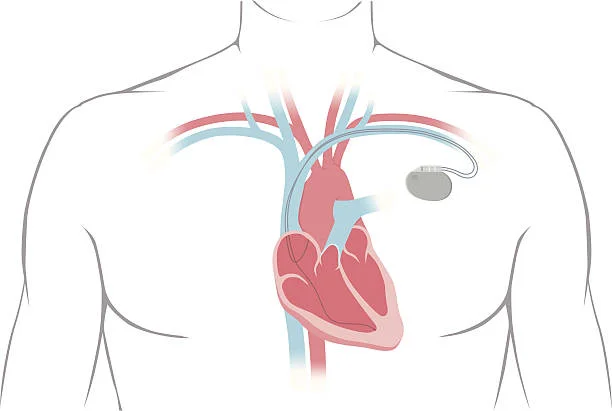Omega-3 is a type of polyunsaturated fatty acid that cannot be naturally produced by the human body and therefore must be obtained through diet. Found in three basic forms DHA, EPA, and ALA Omega-3 has many beneficial functions ranging from brain development to heart health, from immune system to eye health. The richest sources of omega-3 include fatty fish (salmon, mackerel, sardines) and plant foods (flaxseed, chia seeds, walnuts).
Generally safe when consumed in normal amounts through food, Omega-3 can cause some side effects when used in high doses, especially as supplements. Therefore, a doctor should always be consulted before using supplements. Regular intake of Omega-3 through proper consumption of foods is important, as its deficiency can lead to fatigue, difficulty concentrating, and various health problems.
- What is Omega-3?
- What Does Omega-3 Do?
- What Are the Types of Omega-3?
- What Are the Symptoms of Omega-3 Deficiency?
- What Foods Contain Omega-3?
- Omega-3 Content in Foods and Amounts
- How Much Omega-3 Should Be Taken Daily?
- Omega-3 Consumption Recommendations
- Possible Effects of Excessive Omega-3 Consumption
- What Should Be Considered Regarding Omega-3 Supplements?
- Who Should Use Omega-3?
- Who Should Not Use Omega-3?
What is Omega-3?
Omega-3 fatty acids are healthy fats that protect cell structure and help reduce inflammation in the body. Omega-3 can reduce the risk of sudden cardiac events by regulating heart rhythm and help control blood pressure by supporting vascular health. Regular omega-3 intake can provide positive effects on brain functions and overall health. Fatty fish such as salmon, mackerel, and sardines, as well as plant sources such as flaxseed, chia seeds, and walnuts are the best sources of Omega-3.
What Does Omega-3 Do?
Omega-3 fatty acids are among the nutrients that offer important benefits for the body. They support heart and vascular health by lowering triglyceride levels, increasing good cholesterol (HDL) levels, and contributing to a reduced risk of heart attack and stroke. They can help control high blood pressure by balancing blood pressure. Additionally, they play a positive role in joint disorders thanks to their anti-inflammatory effects. These effects of Omega-3 become more pronounced when consumed as part of a regular and balanced diet.
Health benefits of Omega-3:
- Helps lower high blood pressure
- Raises good cholesterol (HDL) levels
- Reduces the risk of heart attack and stroke
- Reduces inflammation and supports joint health
- Strengthens brain development and cognitive functions
- Lowers triglyceride levels
- Protects eye health and improves vision quality
- Helps reduce symptoms of depression and anxiety
- Supports baby’s brain development during pregnancy
- Improves skin health and maintains moisture balance
- Strengthens the immune system
- Shows anti-aging effects
What Are the Types of Omega-3?
Omega-3 fatty acids are found in three essential forms necessary for the body. Each of these fatty acids has different functions in the body and is obtained from different sources. While DHA and EPA are mostly found in seafood, ALA is found in plant sources.
- DHA (Docosahexaenoic Acid): Important for brain development, eye health, and the nervous system
- EPA (Eicosapentaenoic Acid): Has anti-inflammatory properties and supports cardiovascular health
- ALA (Alpha-Linolenic Acid): An essential fatty acid obtained from plant sources that can be partially converted to EPA and DHA in the body
Note: The conversion rate of ALA to EPA and DHA is quite low, so direct intake of DHA and EPA is recommended.
What Are the Symptoms of Omega-3 Deficiency?
Omega-3 deficiency can lead to various health problems in our body. The most commonly encountered symptoms are persistent fatigue, difficulty concentrating, and mood changes. These may be followed by skin problems, joint pain, and sleep disorders.
Symptoms of Omega-3 deficiency may include:
- Constant feeling of fatigue and low energy
- Difficulty concentrating and memory problems
- Mood changes and depressive symptoms
- Dry and flaky skin, hair loss
- Joint pain and stiffness
- Dry eyes and vision problems
- Difficulty falling asleep and deterioration in sleep quality
- Frequent colds and weakening of the immune system
- Increase in cholesterol levels
- Severe cramps during menstrual period
- Brittle and weak nails
- Learning difficulties and attention deficit
- Predisposition to cardiovascular problems
- Increase in allergic reactions
What Foods Contain Omega-3?
The richest sources of omega-3 fatty acids are fatty fish, and regular consumption of primarily salmon, mackerel, sardines, and herring is recommended. Plant sources such as flaxseed, chia seeds, and walnuts also contain significant amounts of Omega-3 and can be easily used in daily nutrition. Additionally, purslane, black cumin, and dark green leafy vegetables are among the foods that contain lower amounts of Omega-3. Including these foods in various ways in daily nutrition helps meet the omega-3 fatty acids needed by the body.
Omega-3 Content in Foods and Amounts
Omega-3 fatty acids are found in different proportions in many foods. When evaluating the amount of Omega-3 in foods per 100 grams, seafood and some plant foods are among the richest sources. Here are detailed Omega-3 contents:
Omega-3 Amounts in Seafood
Seafood, especially fatty fish, are the richest sources of Omega-3. Sea fish generally have higher Omega-3 content compared to farm fish:
- Salmon (wild): 2.2g
- Salmon (farmed): 1.8g
- Mackerel: 2.6g
- Sardines: 1.4g
- Herring: 2.4g
- Anchovies: 1.6g
- Tuna: 0.2-1.1g
- Trout: 1.0g
Omega-3 Amounts in Plant Sources
Plant sources of Omega-3 are of great importance for those who adopt vegetarian and vegan diets. Especially seeds and fatty nuts stand out with their high Omega-3 content:
- Flaxseed: 22.8g
- Chia seeds: 17.8g
- Walnuts: 6.3g
- Purslane: 0.4g
- Spinach: 0.2g
- Broccoli: 0.1g
- Brussels sprouts: 0.1g
- Pumpkin seeds: 0.1g
Note: All values are given for 100 grams of food and may vary according to growing conditions, season, and type.
How Much Omega-3 Should Be Taken Daily?
The recommended daily intake of Omega-3 for adults is generally between 1-3 grams. This amount ranges from 1.1-1.6 grams for plant sources (ALA) and 1-3 grams for fish oil and seafood (EPA/DHA). However, this amount may vary according to age, gender, health status, and special conditions. For example, this amount can increase up to 3-4 grams for pregnant and breastfeeding women. For those at risk of heart disease or with high triglyceride levels, intake of up to 4 grams may be required with a doctor’s recommendation.
To meet daily omega-3 needs:
- 150 grams of salmon (approximately 3g)
- 2 tablespoons of flaxseed (approximately 2.5g)
- 30g walnuts + 100g mackerel (total approximately 2.8g) can be consumed.
Important note: A doctor should always be consulted before using Omega-3 supplements. Especially those who use blood thinners, have bleeding disorders, and are in the pre-operative period should be careful.
Omega-3 Consumption Recommendations
Proper consumption and storage of foods containing Omega-3 is important to get maximum benefit from these valuable fatty acids. Especially contact with heat, light, and air can cause degradation of Omega-3 fatty acids.
- Fish should be consumed fresh
- Seeds should be stored in the refrigerator after grinding
- Fatty fish should be consumed at least twice a week
- Plant sources should be consumed raw
- High heat should be avoided when cooking foods containing Omega-3
- Fish should preferably be grilled or baked
- Ground seeds should be consumed within 1 month
- Raw nuts should be stored in a cool, dry place
- Fish oil supplements should be kept in the refrigerator
- Omega-3 sources should be kept away from sunlight
Possible Effects of Excessive Omega-3 Consumption
Omega-3 is generally safe when consumed in normal amounts through food, but it can cause some side effects, especially when used in high doses as supplements. The most common side effects are digestive problems such as nausea, indigestion, diarrhea or constipation, and a fishy taste in the mouth.
High-dose Omega-3 use can increase the risk of bleeding, especially in those who use blood thinners. It can also cause changes in blood sugar and blood pressure levels. Therefore, a doctor should always be consulted before using Omega-3 supplements, and the recommended daily amount (1-3g) should not be exceeded.
What Should Be Considered Regarding Omega-3 Supplements?
Omega-3 supplements provide an alternative for people who have insufficient fish consumption or need higher doses of Omega-3 due to certain health problems. While the most common forms are fish oil capsules, seaweed-based (vegan) options are also available. The EPA and DHA content of supplements can vary between products, so it is important to carefully review label information.
A doctor should always be consulted before starting to use Omega-3 supplements, reliable brands should be preferred, and recommended doses should not be exceeded. Supplements should be stored in the refrigerator and expiration dates should be regularly checked.
Who Should Use Omega-3?
Omega-3 fatty acids are essential nutrients that our body cannot produce but must be taken for a healthy life. They are of critical importance especially for cardiovascular health, brain development, and the immune system. Therefore, it is known that certain groups need more omega-3 supplementation.
Omega-3 is especially important for the following groups:
- Those at risk of or with cardiovascular disease
- Those experiencing high cholesterol and triglyceride problems
- Those with joint disorders (such as rheumatoid arthritis)
- Pregnant and breastfeeding women (under doctor’s supervision)
- Children and adolescents (for brain development)
- The elderly (to preserve cognitive functions)
- Those experiencing eye health problems
- Those showing symptoms of depression and anxiety
- Vegetarians who do not regularly consume fish
- Athletes and those engaged in intense physical activity
- Those experiencing chronic inflammation problems
- Those at risk of Alzheimer’s and dementia
It is recommended that these groups consult their doctors before using omega-3 supplements and have regular health check-ups. Usage method and dosage may vary from person to person.
Who Should Not Use Omega-3?
Groups for whom omega-3 supplements may be contraindicated include:
- Those using blood thinners (such as warfarin, aspirin), as omega-3 can prolong blood clotting time
- Those with bleeding disorders or in the pre-operative period
- Those allergic to fish and seafood (especially in supplements in the form of fish oil)
- Those with liver disease (in high doses)
- Low blood pressure patients, as omega-3 can have a blood pressure-lowering effect
- Those with excess vitamins A and D (these vitamins may be present in fish oil)
- Diabetes patients (should not use high doses without doctor supervision)
- Women during pregnancy and breastfeeding (without doctor approval)
In these cases, a health professional should always be consulted before omega-3 use, and expert opinion should be obtained regarding the dosage. While usage may be completely prohibited in some cases, controlled usage may be allowed in others.
Reference: Omega-3







